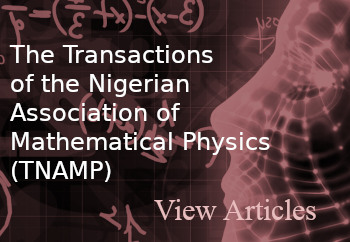LINEAR PROGRAMMING PROBLEMS AS SKEW-SYMMETRIC AND NONSYMMETRIC GAMES: FORMULATION AND SIGNIFICANCE
DOI:
https://doi.org/10.60787/jnamp.vol69no2.529Keywords:
Game Formulation, Linear programming, Game theory, Optimization, Zero-sumAbstract
Game theory models competitive interactions, like military, political, or business conflicts, mathematically. Two-person zero-sum games, where one’s gain equals another’s loss, are central. Optimal strategies are often found by converting these games into linear programming (LP) problems solvable via methods like the simplex algorithm. However, converting LP problems into game formulations is less explored. This study bridges this gap by reformulating LPPs as skew-symmetric and nonsymmetric games. This approach benefits economic applications like comparative advantage and diet problems with positive constraints and prices. Skew-symmetric games’ Super LPP offers computational efficiency due to sparse structures. By enabling bidirectional translation between games and LP, this work expands game theory’s scope and enhances understanding of two-person zero-sum game properties, strategic frameworks, and their mathematical underpinnings
Downloads
References
Carpenter, J. and Robbett, A. (2022). Game Theory and Behavior. Cambridge: The MIT Press.
Ekoko, P.O. (2016). Operations Research for Sciences and Social Sciences. Benin City: Mindex Publishing Company Limited.
Hameed, A. A., Iman, A.H. and Sahar, M.A. (2020). Solving Game Theory Problems Using Linear Programming and Genetic Algorithms. Advances in intelligent systems and computing, 247–252. doi: 10.1007/978-3-030-25629-6_39.
Hillier, F.S. and Lieberman, G.J. (2020). Introduction to Operations Research. New York: McGraw-Hill Education.
Olofınlade, S.O. and Joshua, D.D. (2022). Application of Linear Programming to Game Theory in Finance. Turk Turizm Arastirmalari Dergisi. doi: 10.26677/tr1010.2022.1124.
Osborne, M. J. (2011). An Introduction to Game Theory. New Delhi: Oxford University Press.
Taha, H.A. (2017). Operations Research: An Introduction. New Jersey: Pearson Education Limited.
Wang, W. (2023). Linear programming and its application in analysing game theory. Theoretical and Natural Science, 12(1):46–54. doi: 10.54254/2753-8818/12/20230431.
Downloads
Published
Issue
Section
License
Copyright (c) 2025 The Journals of the Nigerian Association of Mathematical Physics

This work is licensed under a Creative Commons Attribution-NonCommercial-ShareAlike 4.0 International License.




